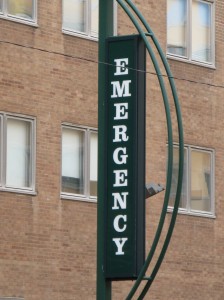カナダã®åŒ»ç™‚ã«ã¤ã„ã¦ã®ç¥žè©± (海外)
 Canada’s health care system has been getting plenty of 米記者. 最近 医療制度改é©ã«ã¤ã„ã¦æ¿€ã—ã„è°è«–ä¸.
Canada’s health care system has been getting plenty of 米記者. 最近 医療制度改é©ã«ã¤ã„ã¦æ¿€ã—ã„è°è«–ä¸.
American journalist T.R. リード, ã¡ã‚‡ã†ã©æ–°ã—ã„本を出版ã—ãŸ, アメリカã®ãƒ’ーリング: A Global Quest for Better, 安ã„, ãã—ã¦ã‚ˆã‚Šå…¬å¹³ãƒ˜ãƒ«ã‚¹ã‚±ã‚¢, in which he looks at not just the Canadian system, but at health care models around the world.
Reid shares his own experiences seeking care for his “bum shoulder” in the U.K., フランス, ドイツ, 日本, カナダ.
In an article for the ワシントン·ãƒã‚¹ãƒˆ, “5 世界一周ヘルスケアã«ã¤ã„ã¦ã®ç¥žè©±,” Reid argues that the U.S. health care system actually takes elements from many other countries’ medical models, including Canada’s:
ã„ã‚ã„ã‚ãªæ„味ã§, foreign health-care models are not really “foreign” to America, because our crazy-quilt health-care system uses elements of all of them. For Native Americans or veterans, we’re Britain: The government provides health care, funding it through general taxes, 患者ã¯æ‰‹å½¢ã‚’å¾—ãªã„. For people who get insurance through their jobs, we’re Germany: Premiums are split between workers and employers, and private insurance plans pay private doctors and hospitals.
For people over 65, we’re Canada: Everyone pays premiums for an insurance plan run by the government (メディケア), and the public plan pays private doctors and hospitals according to a set fee schedule. And for the tens of millions without insurance coverage, we’re Burundi or Burma: In the world’s poor nations, sick people pay out of pocket for medical care; those who can’t pay stay sick or die.
You can also listen to an interview with Reid about his health care adventures on NPR’s Fresh Air.
So what do Canadians think about their own health care system?
Despite ongoing concerns about lengthy waits for certain types of medical procedures, a recent survey by the å¥åº·æƒ…å ±ã®ãŸã‚ã®ã‚«ãƒŠãƒ€ã®ç ”究所 found that overall, Canadians are “happy with primary health care.”
写真©ã‚ャãƒãƒªãƒ³Bã®. ヘラー




















